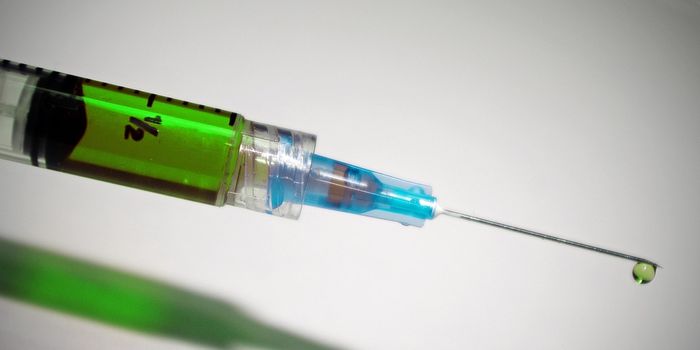A Grandmother's Diet Could Protect her Grandkids' Brain Development
Research has indicated that the environment and diet of mothers can affect the health of their offspring. A new study has suggested that choosing healthy foods like apples, and certain herbs, may not only benefit a woman's health, they could also help shield the brains of their children and grandchildren from deterioration. Although this study used a nematode worm model called Caenorhabditis elegans, human physiology has many things in common with them, and these findings could also apply to us. The findings have been reported in Nature Cell Biology.
There are orthologs for about 83 percent of human genes in C. elegans, and they have a very simple neurological system. In this work, the researchers aimed to determine how exposure to a molecule called ursolic acid that is naturally found in plants might affect the nervous system across generations. Ursolic acid can be found in apples and herbs such as basil, oregano, rosemary, thyme, and sage, for example. It can also provide neuroprotection. The integrity of axons was boosted, across generations, when worms were given uroslic acid. Axon transport was also improved.
Axons are a part of neurons, and they project to send electrical signals that control our bodies and brains. Their function also depends on the proper transport of essential goods in neurons, along microtubule networks. Transport in axons can become disrupted, and axons may become fragile and break down, which leads to neurodegeneration and dysfunction. In this study, the researchers used an animal model in which the axons became more fragile as they aged. They were interested in how various components of the diet might ameliorate that fragility, said corresponding study author Professor Roger Pocock of the Monash Biomedicine Discovery Institute.
"We identified a molecule found in apples and herbs (ursolic acid) that reduces axon fragility. How? We found that ursolic acid causes a gene to turn on that makes a specific type of fat. This particular fat also prevented axon fragility as animals age by improving axon transport and therefore its overall health."
The fat Pocock is referring to is called a shingolipid; it can move from digested food in the intestine to eggs in the uterus in order to exert a neuroprotective effect in the next generation. Specifically, a sphingolipid called sphingosine-1-phosphate increased the activity of the acid ceramidase-1 (asah-1) gene in the intestine, which has an intergenerational effect. The study suggested that some lipid metabolites may work as messengers between generations.
These findings still need to be confirmed in humans.
"This is the first time that a lipid/fat has been shown to be inherited," added Pocock. "Further, feeding the mother the sphingolipid protects the axons of two subsequent generations. This means a mother's diet can affect not just their offspring's brain but potentially subsequent generations. Our work supports a healthy diet during pregnancy for optimal brain development and health."
Sources: Monash University, Nature Cell Biology









